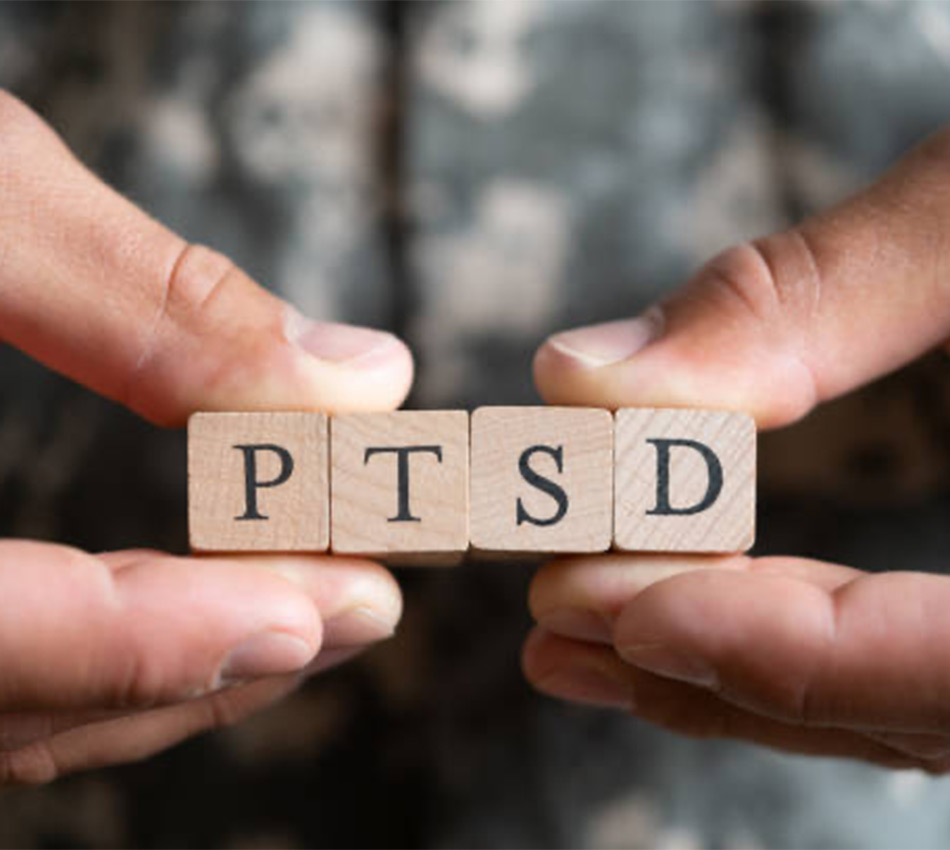
Understanding PTSD and its impact
Experiencing a traumatic event can leave deep emotional wounds that don’t fade with time. PTSD counselling helps individuals process and recover from these lasting effects, using interventions tailored to the severity of their symptoms.
Post-traumatic stress disorder (PTSD) is a mental health condition triggered by experiencing or witnessing a traumatic event—such as war, sexual assault, violence, serious injury, or a life-threatening incident. While fear and distress are natural responses to danger, PTSD occurs when these feelings persist long after the event, disrupting daily life.

When does PTSD require professional help?
The body’s natural fight-or-flight response helps us react to danger, but for those with PTSD, this response remains heightened, keeping them in a state of emotional and psychological distress for months or even years. Unprocessed trauma can hinder healing, making it difficult to move forward.
If you or someone you know is struggling with persistent symptoms, seeking professional support can make a difference. Book an online or in-person counselling session with us to take the first step toward healing.
Signs and symptoms of PTSD
PTSD symptoms fall into four main categories: intrusion, avoidance, mood and cognition changes, and heightened reactivity. Common symptoms, which can vary in intensity, include:
 Intrusion: Re-experiencing the trauma
Intrusion: Re-experiencing the trauma
- Recurrent, unwanted distressing memories of the event
- Reliving the trauma as if it were happening again (flashbacks)
- Upsetting dreams or nightmares about the event
- Intense emotional or physical reactions to trauma reminders
 Avoidance: Steering clear of reminders
Avoidance: Steering clear of reminders
- Avoiding places, people, or situations linked to the trauma
- Suppressing thoughts or emotions related to the event
 Cognition and mood: Negative changes in thoughts and feelings
Cognition and mood: Negative changes in thoughts and feelings
- Difficulty remembering key details of the trauma
- Persistent negative thoughts about oneself or others
- Unjustified self-blame or misplaced blame on others
- Loss of interest in once-enjoyable activities
- Difficulty concentrating
- Ongoing feelings of fear, anger, guilt, or shame
- Feeling emotionally numb or disconnected from others
 Reactivity and arousal: Heightened alertness and emotional responses
Reactivity and arousal: Heightened alertness and emotional responses
- Hypervigilance (constantly feeling on guard)
- Being easily startled
- Persistent tension or feeling “on edge”
- Sleep disturbances
- Frequent irritability or angry outbursts
- Engaging in reckless or self-destructive behaviors

PTSD from infidelity
While PTSD is often associated with war, violence, or natural disasters, it can also be triggered by personal betrayals, such as infidelity. Many individuals experience deep emotional trauma when they discover their spouse has cheated, leading to symptoms of PTSD.
At Incontact, we have worked with clients who have experienced the emotional fallout of infidelity, helping them process their trauma, rebuild trust, and heal from the emotional scars of betrayal.
PTSD treatment at Incontact
PTSD counselling involves various interventions, used alone or in combination, depending on symptom severity and trauma intensity. Common methods include:
Cognitive Behavioural Therapy (CBT)
CBT helps identify and replace unhealthy thought patterns with healthier ones. It increases emotional insight, helping clients reframe negative emotions (e.g., guilt, shame) and beliefs (e.g., “I have failed,” “the world is dangerous”). With guided support, CBT reduces distressing thoughts and behaviors, aiding recovery.
Exposure Therapy
This treatment helps clients confront fears by describing and processing traumatic events in a safe environment. Avoidance may provide short-term relief but reinforces fear over time. Exposure therapy gradually desensitizes clients to trauma-related triggers, helping them manage fear effectively.
Eye Movement Desensitisation and Reprocessing (EMDR)
EMDR targets trauma-related memories to reduce distress from flashbacks, triggers, and hypervigilance. It retrains the brain to recognize that the traumatic event is in the past, promoting rational thinking. Therapists guide clients through structured memory processing to alleviate symptoms.
Brief Eclectic Psychotherapy (BEP)
BEP integrates CBT techniques with a psychodynamic focus on emotions like shame and guilt. It emphasizes the therapeutic relationship and follows a structured 16-session program, each with a specific goal, to help manage PTSD symptoms effectively.
Narrative Exposure Therapy (NET)
NET helps clients create a structured life narrative, focusing on traumatic events while incorporating positive experiences. This process refines memory, providing greater clarity and emotional processing of past trauma.
Schema Therapy
Schema Therapy helps clients identify deep-rooted negative patterns (schemas) formed in early life that contribute to PTSD symptoms. By addressing these patterns through cognitive, emotional, and behavioral techniques, Schema Therapy promotes long-term healing and emotional resilience.

How PTSD counselling works
Counselling helps individuals with PTSD replace unhealthy thought patterns with more accurate and positive ones. It provides a safe space to confront fears, fully process trauma, and work toward healing. As outlined above, PTSD counselling can involve various interventions, including CBT, Exposure Therapy, EMDR, BEP, and NET.
At Incontact, our experienced therapists help you process trauma effectively, reduce symptoms, and regain a sense of control. We tailor intervention programs to your unique experiences and needs, ensuring a personalised approach to healing.
By integrating various evidence-based methods, we make each session meaningful and aligned with your mental health goals. Our therapists build strong, supportive relationships—empowering you on your journey of self-development so you can heal, grow, and become your best self.
See also
FAQ
Post-Traumatic Stress Disorder (PTSD) is a mental health condition triggered by experiencing or witnessing a traumatic event. Unlike normal stress, PTSD symptoms persist long after the event and can significantly disrupt daily life.
If you experience symptoms such as flashbacks, nightmares, severe anxiety, or avoidance of reminders related to a traumatic event, it may indicate PTSD. Consulting with a mental health professional can help determine if counselling is appropriate.
Effective therapies for PTSD include Cognitive Behavioral Therapy (CBT), Exposure Therapy, Eye Movement Desensitization and Reprocessing (EMDR), and Narrative Exposure Therapy (NET). These approaches help individuals process and heal from traumatic experiences.
The duration of PTSD counselling varies based on individual needs and the severity of symptoms. Some individuals may experience improvement in a few months, while others may require longer-term therapy.
Many insurance plans in Singapore cover mental health services, including PTSD counselling. It's advisable to check with your insurance provider to understand the extent of your coverage.
Yes, many counselling services offer online sessions, providing flexibility and accessibility for individuals seeking support.
During a counselling session, you'll discuss your experiences and symptoms with a trained therapist. The therapist will work with you to develop coping strategies and may use specific therapeutic techniques tailored to your needs.
Yes, several organizations in Singapore offer support groups for individuals with PTSD, providing a community of people who understand and share similar experiences. Your therapist at Incontact can also guide you in finding suitable support groups to complement your therapy and further aid your recovery.
You can find qualified PTSD counsellors through reputable counselling centers, mental health organizations, or professional directories. It's important to ensure that the counsellor is licensed and has experience in treating PTSD.
Seeking PTSD counselling can help you process traumatic experiences, develop coping mechanisms, reduce symptoms, and improve your overall quality of life.














